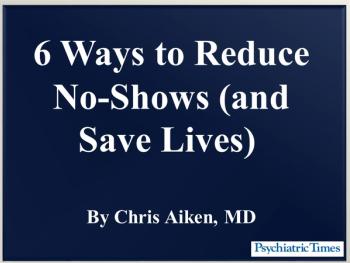
Not just a nuisance, no-shows are an opportunity to turn things around for patients with bipolar disorder, whose treatment adherence hovers around 60%.

Not just a nuisance, no-shows are an opportunity to turn things around for patients with bipolar disorder, whose treatment adherence hovers around 60%.
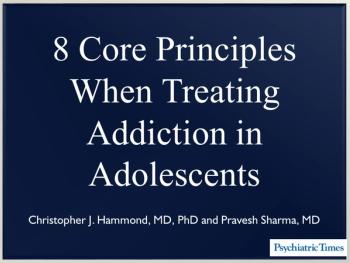
The main goal in treating addiction is to help the patient achieve and improve functioning. When that patient is also an adolescent, there are special considerations. Here's a quick primer.
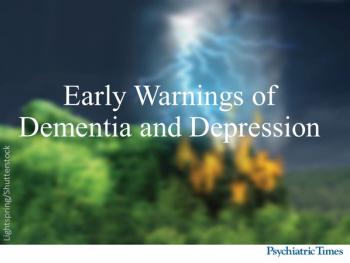
Among the clues revealed in 3 recent studies: brain amyloid, saliva biomarkers, and microvascular dysfunction.
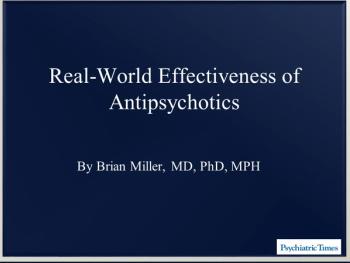
Which of these agents best prevents relapse? A recent study employed a novel approach to find out.
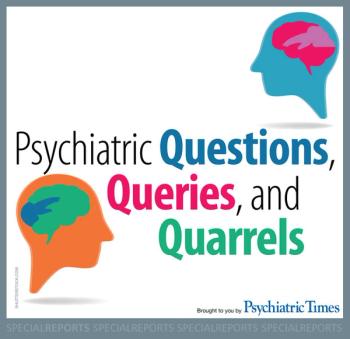
In psychiatry, hot debates abound if you just look around-and if this Special Report collection is any indication, the result is a balance of opinion and civility made richer by virtue of opposing views.
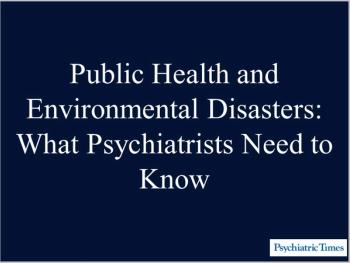
Most individuals who have experienced a disaster-related event or epidemic are at increased risk for distress behaviors that have equally significant and chronic consequences. Here’s what psychiatrists need to know.
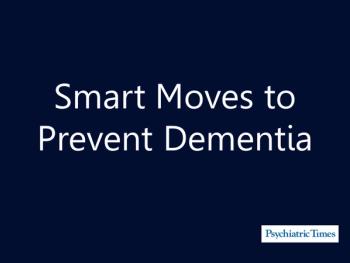
Three new studies show exercise can improve cognitive function, psychotropics for PTSD may raise dementia risk, and 3 biomarkers can help predict cognitive decline in elderly persons.
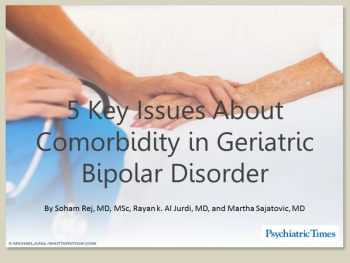
Clinicians need to consider and manage multiple medical and cognitive comorbidities when working with the elderly population. This slideshow provides an overview of key points relevant to geriatric bipolar disorder as it relates to comorbidity.
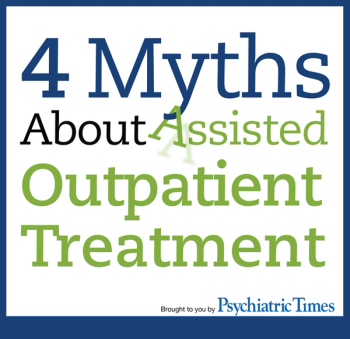
After lounging on the doorstep of respectability for the past decade, assisted outpatient treatment is here to stay. But some still balk at the notion.
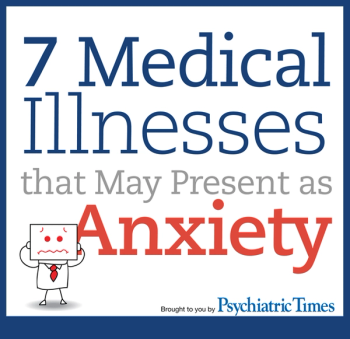
Beyond psychosocial implications of anxiety disorders, an array of physiological effects may ensue.
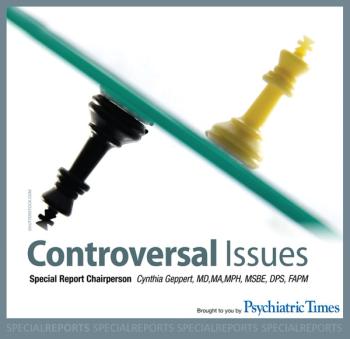
Strong evidence supports sound arguments on each side of 3 debates covered here-so get in there and fight nice.
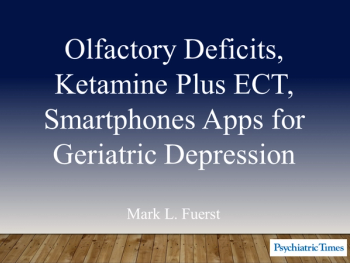
The latest news in geriatric psychiatry covers olfactory deficits in cognitively impaired patients, a smartphone app for older adults with serious mental illness, and adjunctive ketamine for late-life depression.
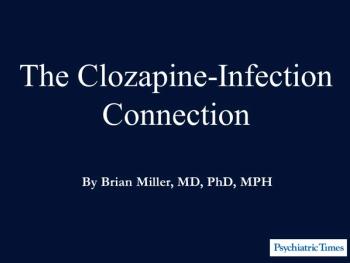
Monitoring patients for 5 key changes can help avert drug toxicity.
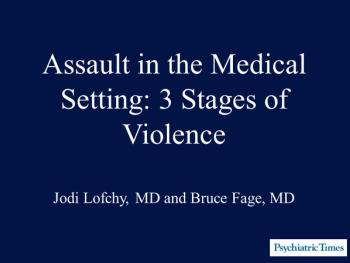
When clinicians work without ready access to a security team or environmental safety protocols, early recognition is crucial to preventing or avoiding those rare occasions when behavior problems escalate.
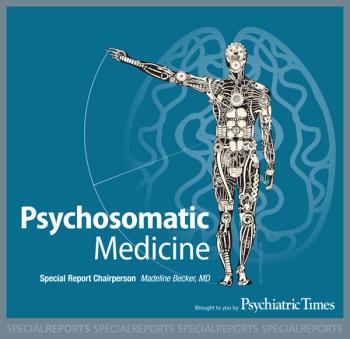
An update on emerging trends in psychosomatic medicine to help clinicians address mental health stressors in psychiatric and medical settings.
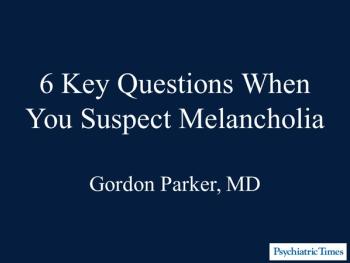
Most depressed people acknowledge impaired concentration and other related symptoms-but skilled clinicians can distinguish between non-melancholic depression and melancholia. How? They ask the right questions.
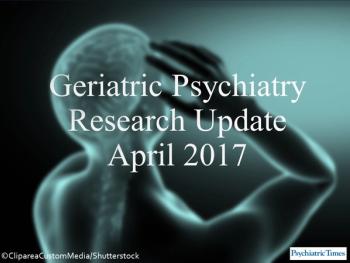
Three recent studies on dementia show antioxidants lack preventive effects, autoimmune disease hospitalization is a risk factor, and cognitive stimulation has modest benefits.
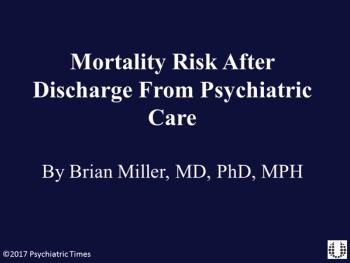
Which patients are at greatest risk for premature death following discharge?
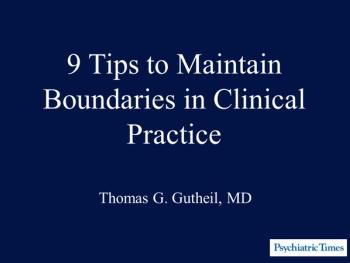
The points summarized in this pocket guide-drawn from actual cases-recur repeatedly as problems for practitioners.
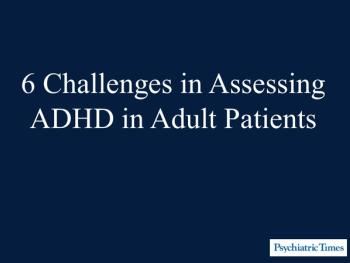
The clinical presentation and functional impacts of ADHD in adults vary greatly from their child and adolescent counterparts.
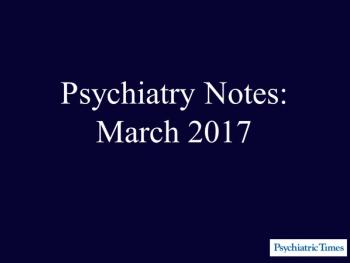
A 10-1 federal appeals court decision allows Florida doctors to gun ownership with their patients; a psychiatrist on the front lines in war-torn areas; a new rule that allows for 24-hour shifts plus an additional 4 hours for residents-these and other recent stories are covered in this roundup.

Strategies to reduce aggression in psychiatric treatment settings.
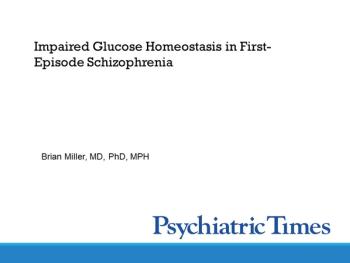
Recent findings suggest metabolic abnormalities may be independent of the effects of antipsychotics.
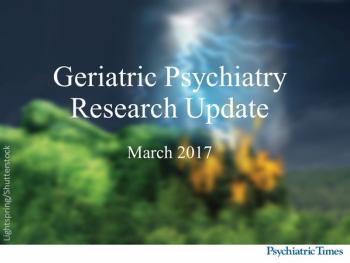
Insights from 3 recent studies on the benefits of mental stimulation for mild cognitive impairment, effect of brain stimulation on memory, and risk of dementia in men with sleep apnea.
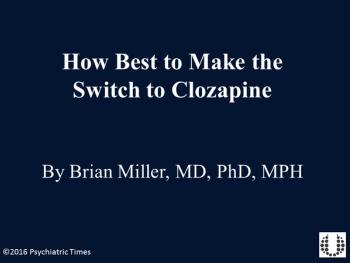
What’s the optimal approach for patients with treatment-resistant schizophrenia?
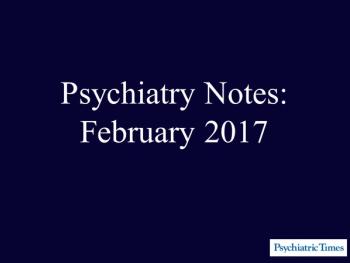
Editors' picks for recent stories in mental health, including Executive orders and "Islamophobia,” effect of parental obesity on childhood development, personality, and global mental health.
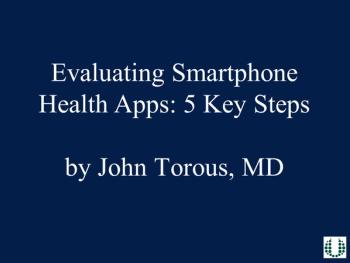
Finding a smartphone health app can be a challenge for both patients and physicians. A new evaluation model can help guide informed decision-making.
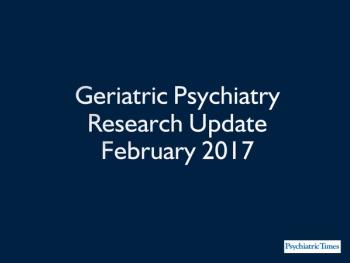
Highlights of 3 recent studies that focus on psychiatric disorders in older adults.

Can dietary supplementation decrease the risk of transition to psychosis?
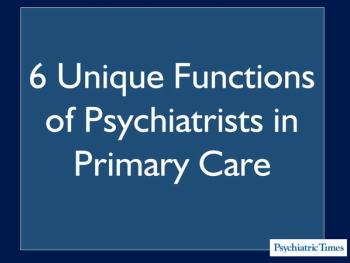
In some segments of the evolving health care system, primary health care teams with psychiatry at their core are becoming a reality. Here are 6 ways psychiatrists add value to primary care health teams.